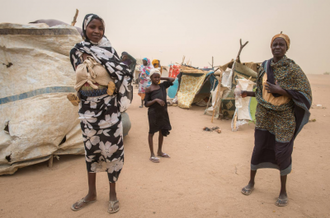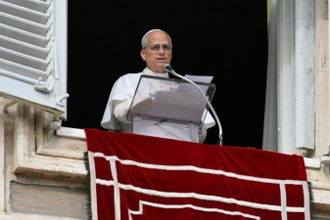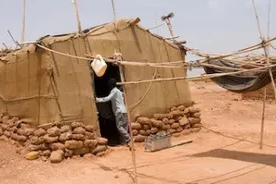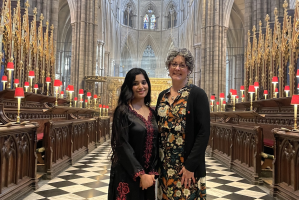Sudan on the precipice

Lives disrupted in Sudan, Credit: Caritas
As the war in Sudan drags on, families are moving repeatedly to avoid the fighting. A generation ago, Christians and animists fled their traditional homeland of South Kordofan to escape the Islamist regime's campaign to eliminate non-Arabs and non-Muslims. Many settled in the non-Arab communities around Khartoum. Now, as war rages in the Sudanese capital, an estimated 160,000 of them have returned to South Kordofan, only to be engulfed in more violence.
A new Save the Children report says at least 50,000 people, of whom 30,000 are children, have fled Kadugli, the South Kordofan capital, as war has intensified there. The charity says families are leaving with only what they can carry. Their report describes a siege situation in which no food or medicine can enter the city. Save the Children warns of a humanitarian catastrophe unless the fighting stops.
Raga Gibreel, from the charity Green Kordofan, told ICN: "We are hearing news of arbitrary arrest and killings in the surrounding areas of Kadugli, Delami and other towns and villages of South Kordofan. In August there was a remarkable increase in armed violence, making the area inaccessible for humanitarian aid, which is very worrying indeed. The saddest part is it was predictable as there were not enough done to prevent or halt the mass killings. People who survived the 1980s conflict in South Kordofan have never fully recovered. There are still deep wounds from the past and the present. I pray for hope."
Those fleeing Kadugli are among an estimated seven million people who have been uprooted since the Sudanese Armed Forces and the paramilitary Rapid Support Forces began fighting in April. Two million have fled Khartoum, a city of five million people. In one week in August, another 300,000 entered neighbouring countries. The UN believes that 1.8m will seek refuge in camps in five countries bordering Sudan. On one night, 70,000 arrived in the Central African Republic. The need to provide shelter to refugees is stretching the UN's humanitarian response budget, with reports of Sudanese families experiencing extreme hardship once they reach safety.
There are no accurate casualty figures, but in Darfur alone it is believed that tens of thousands have been killed. This week, the UN was told that there was credible evidence of 13 mass graves in Darfur: the victims are non-Arab Massalit killed by the Rapid Support Forces. Analysts say that once the fighting began in Khartoum, the mainly Arab Janjaweed in Darfur, now rebranded as the Rapid Support Forces, resumed their campaign to eliminate the non-Arab ethnic groups living in Darfur. The Redress NGO believes there is mounting evidence of war crimes.
On 6 September, Alice Wairimu Nderitu, the UN's Special Advisor on the Prevention of Genocide, reported, "persistent and ongoing levels of identity-based violence" and the "increasing risk of the specter of genocide and related atrocity crimes."
In South Kordofan, where the population is mainly non-Arab and non-Muslim, there are credible allegations that Sudan's Military Intelligence officers are torturing civilians to death.
Meanwhile, civilians in the capital continue to be caught in intense and indiscriminate crossfire, shelling and bombing between the Sudanese Armed Forces and the Rapid Support Forces. Although both sides have told diplomats that they do not target civilians, the scale of casualties make it clear that neither is concerned by the effect of the fighting on the population. It is alleged that the Rapid Support Forces evict people from their homes so they can hide within neighbourhoods which are then bombed or shelled by the Sudanese Armed Forces. Looting, sexual assault and torture are reportedly widespread. Most recently, 49 were killed when a market and a residential area in Khartoum were bombed in what MSF described as Sudan's most deadly week so far.
Although both sides claim to be fighting for the benefit of the nation, Sudanese democracy activists point out that civilians have not responded to calls to join either side. Instead, local resistance committees of volunteers have been providing food and medical services to millions trapped in their homes since the beginning of the conflict.
This week, a group of 50 NGOs has called on the UN Security Council to offer more than words of condemnation. They warn that Sudan has already reached a precipice. Several parallel sets of negotiations hosted by various groups have made little progress in securing a lasting ceasefire. The UK remains one of the most generous donors to the UN Sudan Humanitarian Fund, providing 17% of the $74m recently collected, second only to the USA's 30%. Media coverage of the violence in Sudan declined once the last ex-patriots were evacuated.
Green Kordofan is seeking GBP5,000 to supply solar panels in the refugee camps along the border with South Sudan. Donations can be made at www.greenkordofan.com


















